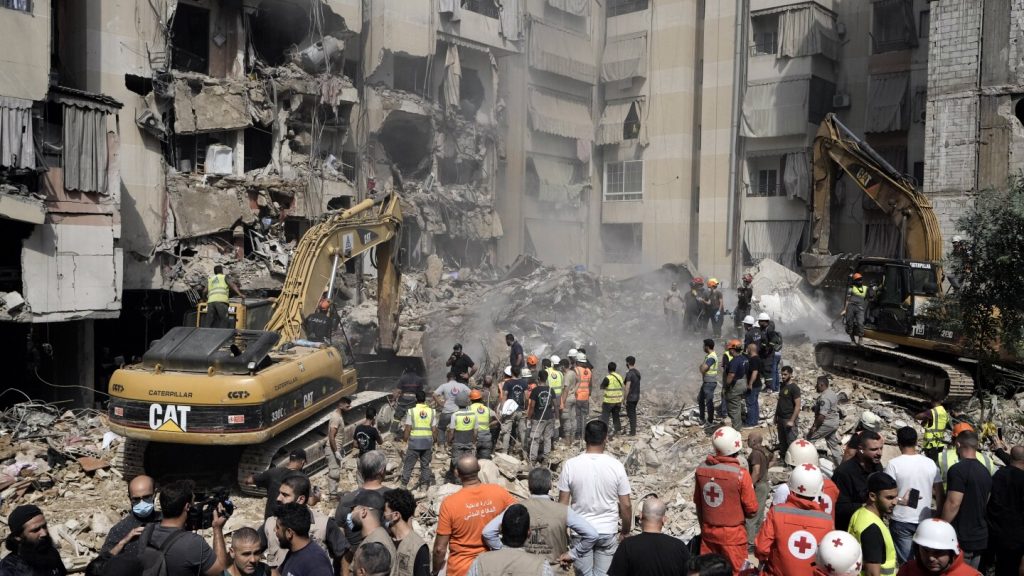In Beirut, Lebanon, Israel and Hezbollah engaged in a violent exchange of fire on Saturday. This came after an Israeli airstrike leveled an apartment building, killing at least 37 people, including a senior leader of Hezbollah, as well as women and children. The Israeli government anticipated a surge in Hezbollah rocket attacks and imposed new restrictions in northern Israel, leading to the cancellation of classes in some schools. The airstrike targetted a Hezbollah meeting in the building, resulting in the deaths of top officials like Ibrahim Akil and Ahmed Wahbi.
Israel’s defense minister, Yoav Gallant, claimed that the attack disrupted Hezbollah’s chain of command and eliminated individuals responsible for Israeli deaths. Lebanon’s health minister, Firass Abiad, reported that seven women and three children were among the casualties, with many more injured. The strike was the deadliest in Beirut since the 2006 Israel-Hezbollah war, with several people still missing. Akil, wanted by the US for his alleged involvement in attacks, was hailed as a significant target, while Wahbi had a long history within Hezbollah.
Following the airstrike, both Israel and Hezbollah continued their attacks, leading to the firing of rockets at northern Israel and Israeli strikes on Lebanon. The Israeli military confirmed multiple rocket launches and strikes on rocket launchers in Lebanon. Israeli defense authorities issued safety guidelines for areas in northern Israel and prepared for potential conflict by relocating military forces to the northern border. Hezbollah insisted on halting attacks only if a ceasefire was reached between Israel and Hamas in Gaza.
The recent escalation of violence between Israel and Hezbollah followed ongoing clashes along the Israel-Lebanon border, with Hezbollah attributing their attacks to Israeli strikes in southern Lebanon. The conflict intensified after mass explosions of Hezbollah pagers and walkie-talkies, which killed dozens and wounded thousands. While Hezbollah retaliated with rocket salvos, Israel’s Iron Dome intercepted most of the projectiles. The airstrikes and rocket attacks have raised concerns about a potential wider military operation in Lebanon and the impact on civilians in the region.
The conflict between Israel and Hezbollah has deep roots, with both sides engaging in retaliatory attacks and escalating tensions. The involvement of other countries, like the US, adds another layer of complexity to the situation. As the violence continues, the international community calls for restraint and a peaceful resolution to prevent further loss of life and widespread destruction. The ongoing conflict highlights the fragility of peace in the region and the need for diplomatic efforts to de-escalate tensions and avoid a full-blown war. The situation remains fluid, with the potential for further violence and instability in the region.


